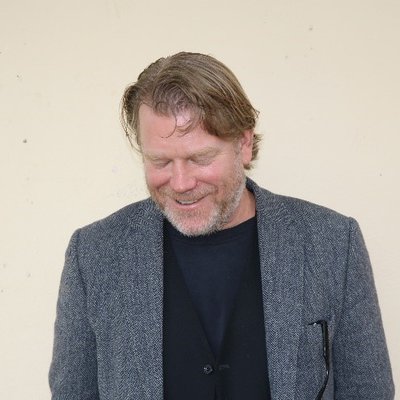Poet, William Patrick Woodcock, Visits BISA
21st June 2018
Article by Josephine Kiaga - Media Prefect
‘Writing is as essential to me as eating and sleeping.’
Braeburn was fortunate enough to host and work with the brilliant William Patrick Woodcock. Woodcock is a Canadian author of nine books of poetry inspired from diverse experiences drawn from his travels into Iceland, Poland, Russia, Bosnia and Herzegovina, Colombia, Oman, Saudi Arabia, the Kurdish north of Iraq, Azerbaijan and most recently our own Tanzania. Woodcock has a fluid, ever-changing style that he attributes to mood and experience. His poems are highly regarded by their content, form and style, which he himself said inspire him as they are easily translated between languages.

Woodcock came from a creative home. His father an Irishman who had a taste for singing -leaving a limerick for his wife every morning- and his mother was a ballet teacher while his brother played violin. Though he loves all forms of art from paintings to music, poetry has always appealed to him more than others. The love he has for his favourite poems remain unmatched by his love for other works of art. At age 16 he began to explore music. He enjoyed the lyricism of the songs and listened to artists that spoke of poetry and art.
‘Writing physically affects my body...I’m far happier and kinder when I write.’
Writing is a huge part of Woodcock’s daily life. He always has his trusty camera and recorder in order to capture the natural beauty of the world he lives in. Naturally, he pays attention to the little things in his day to day life, drawing inspiration from things some people would ignore or take for granted like the texture of someone’s hand or the colours merging in the sky. Alongside capturing day to day activities, travelling is essential to Woodcock’s writing. He prefers to work in the country and become one with the culture and give back while creating his art. He chooses places to live based on his cultural instinct and getting drawn to the area.
‘I want to write to celebrate the good things in the world but also to purge myself of the things that I find too disturbing to keep in.’
Not everything is as beautiful and bright as one might expect. Woodcock has seen some very horrific things for example in Sarajevo he was constantly faced with grenade bombs in the ground on the streets marking areas where people had died (The Sarajevo flower). But as he said ‘from this pain comes art’. Out of the tragedies Woodcock learns and gets inspired by the culture and this affects how he himself will see the world. Deciding where to go for him is simply a work of inspiration, sometimes it’s as simple as a news story on TV.
‘There’s no shortage. Every day I see something.’
From Tanzania he has drawn experience from graffiti, the environment and conversations with locals. He admires the kindness of the Tanzanian people and their willingness to cooperate and speak to him. He works at a local school, Baraa Primary School with children, teachers and colleagues. Through teaching them, he inspires and shares creativity. He has held a number of workshops at Braeburn and has already inspired some of our poetic sixth form students with his experiences and stories. Woodcock journals and documents anything that inspires him and let’s face it, in Tanzania there’s nothing short of inspiration around the corner. His poems about Tanzania will finish his upcoming book and begin his following book as he writes in a consequential style.
‘Use the internet as a tool to explore.’
Because of the internet, Woodcock feels he has furthered his career. Due to the instant availability of information, his poems can be regarded as true and not fictional tales. As a teenager he would often go to the library to research his favourite poets and track them back further. He believes that the ability to read and see the finest work plays into our lives perfectly. By using the internet to explore your favourite poets you can then find their favourite poets and so on and so forth. Art is based on inspiration and learning. Now this new generation can search things within seconds this is what they should do. You can experience so much without even leaving your room. Once you find a poet that you like and means a lot to you, you should follow in their path and track his or her roots. He was drawn to Eastern European and Asian writers and accredits his writing style and work to this research.
‘If I worked at it for a week...I would have thousands of inspirations’
Woodcock has a very fluid style that is drawn from multiple inspirations. Though his inspiration depends on the particular day you ask him, some poets that inspired him remained unchanged. One being famous poet Russian-American poet Joseph Brodsky who was expelled from Russia and moved to the States, learnt English well enough to write in it and primarily focused on society. As well as Sergei Yesenin, one of the most famous Russian lyricists of the 20th century. His poetry meant a lot to Woodcock growing up. When he went to Azerbaijan he went to the house Yesenin lived in and wrote about him in his very home. So many poets inspire him. Every day he might tell you another. But all in all he uses each of them to further his work every day. We hope to see Woodcock progress even further in his work and wish him the best.
‘Even now I’m not where I want to be but it’s just something I’ll work at till my dying day’











